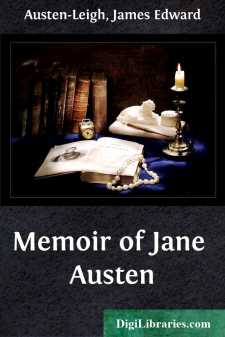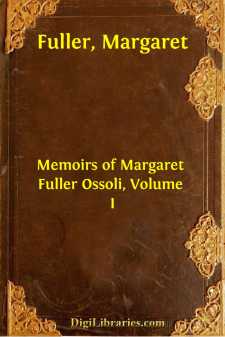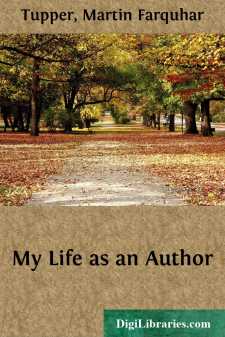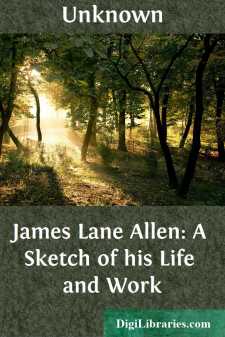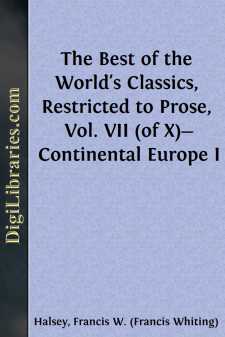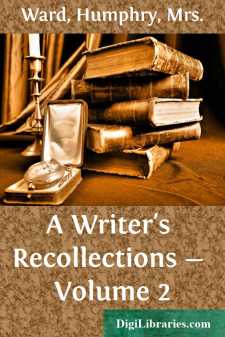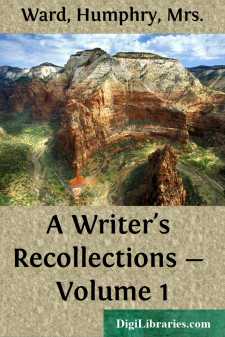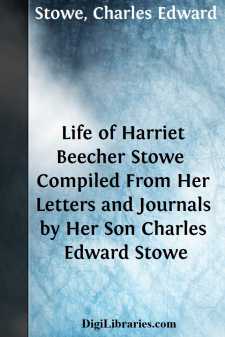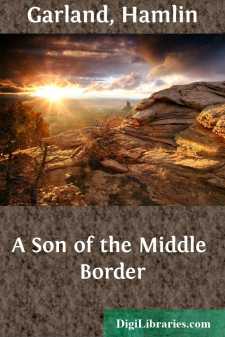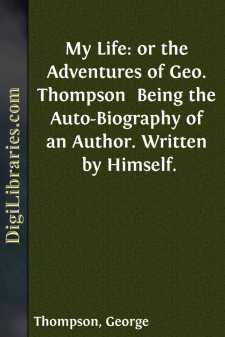Biography & Autobiography
- Adventurers & Explorers 15
- Artists, Architects, Photographers 16
- Business 2
- Composers & Musicians 14
- Criminals & Outlaws 5
- Editors, Journalists, Publishers 6
- Educators 1
- Entertainment & Performing Arts 3
- General 73
- Health, Exercise & Fitness 1
- Historians 3
- Historical 83
- Law Enforcement 1
- Lawyers & Judges 3
- Literary
- Medical 7
- Military 48
- Naturalists, Gardeners, Environmentalists 8
- Personal Memoirs & Diaries 226
- Philosophers 3
- Political 9
- Presidents & Heads of State 38
- Religious 38
- Rich & Famous 27
- Scientists 13
- Women 31
Literary Books
Sort by:
CHAPTER I. Introductory Remarks—Birth of Jane Austen—Her Family Connections—Their Influence on her Writings. More than half a century has passed away since I, the youngest of the mourners, attended the funeral of my dear aunt Jane in Winchester Cathedral; and now, in my old age, I am asked whether my memory will serve to rescue from oblivion any events of her life or any traits of her character...
more...
by:
Margaret Fuller
YOUTH. AUTOBIOGRAPHY. * * * * * "Aus Morgenduft gewebt und Sonnenklarheit Der Dichtung Schleir aus der Hand der Wahrheit." GOETHE. "The million stars which tremble O'er the deep mind of dauntless infancy." TENNYSON. "Wie leicht ward er dahin gefragen, Was war dem Glücklichen zu schwer! Wie tanzte vor des Lebens...
more...
CHAPTER I. PRELIMINARY. I have often been asked to prepare an autobiography, but my objections to the task have ever been many and various. To one urgent appeal I sent this sonnet of refusal, which explains itself:—"You bid me write the story of my life,And draw what secrets in my memory dwellFrom the dried fountains of her failing well,With commonplaces mixt of peace and strife,And such small...
more...
by:
Unknown
While "The Choir Invisible" was primarily a love story, the setting in which its action moved was historical. Apart from the masterly handling of human passion and the harmony of thought and expression with which he has treated the larger and deeper movements of life, it is probably Mr. Allen's ability to picture forth the early settlement of Kentucky that has given his writings so solid a...
more...
IMPERIAL POWER FOR GOOD AND BAD MEN Let us examine the nature of the spaciousness and continuance of empire, for which men give their gods such great thanks; to whom also they exhibited plays (that were so filthy both in actors and the action) without any offense of honesty. But, first, I would make a little inquiry, seeing you can not show such estates to be anyway happy, as are in continual wars,...
more...
by:
Humphry Ward
CHAPTER I LONDON IN THE 'EIGHTIES The few recollections of William Forster that I have put together in the preceding volume lead naturally, perhaps, to some account of my friendship and working relations at this time with Forster's most formidable critic in the political press—Mr. John Morley, now Lord Morley. It was in the late 'seventies, I think, that I first saw Mr. Morley. I sat...
more...
by:
Humphry Ward
CHAPTER I EARLY DAYS Do we all become garrulous and confidential as we approach the gates of old age? Is it that we instinctively feel, and cannot help asserting, our one advantage over the younger generation, which has so many over us?—the one advantage of time! After all, it is not disputable that we have lived longer than they. When they talk of past poets, or politicians, or novelists, whom the...
more...
Harriet Beecher (Stowe) was born June 14, 1811, in the characteristic New England town of Litchfield, Conn. Her father was the Rev. Dr. Lyman Beecher, a distinguished Calvinistic divine, her mother Roxanna Foote, his first wife. The little new-comer was ushered into a household of happy, healthy children, and found five brothers and sisters awaiting her. The eldest was Catherine, born September 6,...
more...
by:
Hamlin Garland
Home from the War All of this universe known to me in the year 1864 was bounded by the wooded hills of a little Wisconsin coulee, and its center was the cottage in which my mother was living alone—my father was in the war. As I project myself back into that mystical age, half lights cover most of the valley. The road before our doorstone begins and ends in vague obscurity—and Granma Green's...
more...
by:
George Thompson
In which the author defineth his position. It having become the fashion of distinguished novelists to write their own lives—or, in other words, to blow their own trumpets,—the author of these pages is induced, at the solicitation of numerous friends, whose bumps of inquisitiveness are strongly developed, to present his auto-biography to the public—in so doing which, he but follows the example of...
more...


